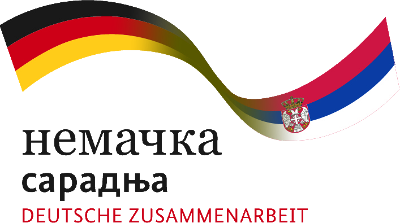CROATIA
District heating counts around 10% of the overall heat supply in the country. There are around 13 district heating companies in 19 cities and towns, including the main district heating company is HEP-Toplinarstvo, subsidiary of national power company HEP, holding 85% of the market share. Current district heating systems in Croatia mainly belong to so called 2nd generation of district heating, using hot water with supply temperatures well above 100°C.
Natural gas is the main fuel for district heat, while around 80% of district heat was generated through combined heat and power. Bad condition of existing building stock as well as the distribution grid requires substantial retrofitting. Modernisation and expansion of district heating systems in set as one of the priorities for Croatian energy policy.
KeepWarm resources
KeepWarm Showroom of replicable and bankable DHS pilot projects
The purpose of this Service Pitch Book is to relay the availability of replicable, bankable examples of DH-retrofits for both energy efficiency (EE) and integrating more sustainable energy sources (i.e. RES and/or excess heat, ExH), as well as providing information about national contexts, especially useful to audiences outside a particular country. It highlights the pilot DHSs which have been actively participating in KeepWarm’s activities, giving them visibility as well as stimulating networking opportunities to reach out to them directly for improving DH even further.
This Showroom has been translated into the languages of KeepWarm project partners. Please find here the Croatian version.
KeepWarm Guidance Document
This guidance document has been created as a means of helping you navigate some of the key issues involved in upgrading your district heating (DH) by using more sustainable energy sources, namely from a variety of viable renewable energy sources and/or excess heat harvestable from industrial/commercial processes. Integrating and fully-switching to these greener DH alternatives makes sense not only at an operational level, but is greatly supportive, if not essential, for the successful implementation of a variety of Europe’s flagship policy initiatives.
This Guidance Document has been translated into the languages of KeepWarm project partners. Please find here the Croatian version.
Capacity Building
The tailor made Capacity Building programme for Croatia covers training topics identified by Croatian DHS operators and staff during the needs assessment phase. The highest priorities have been given to technical topics. Top priority topics were additionally also identified in RES and EE topics including waste to energy aspects, financial topics and managerial topics. The trainings have been evaluated through anonymous questionnaires by the trainees.
Replicable DHS demo cases
News archive
Country project partner
The research group at the Power Engineering and Energy Management Chair at the University of Zagreb is leading in the field of sustainable development of energy in the region. Its main areas of research include energy planning and management, optimisation and sizing of energy systems, energy demand modelling and mapping, as well as sustainability of regions. For KeepWarm, UNIZAG FSB works on capacity building of DHS operators and support to pilot projects in Croatia.

REGEA is the energy agency for Croatia and the whole region. It provides information, education and promotion of good practice across the energy sector in support of development and implementation of national and regional energy plans and programmes. Moreover, it leads energy audits and certification, energy performance contracting and public private partnerships. For KeepWarm, REGEA will be supporting pilot projects in all countries, as well as the Croatian DHS pilots.



